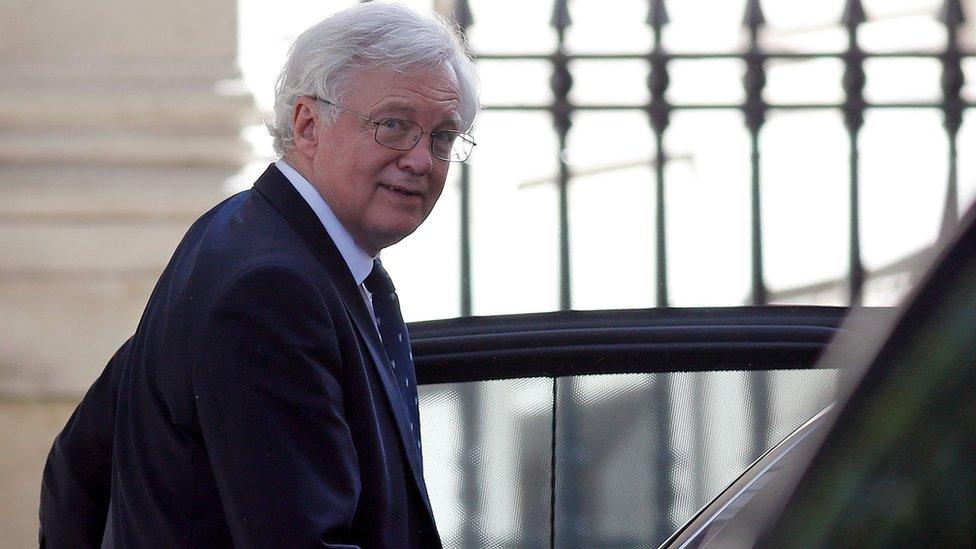Will White Paper provide answers?
- Published

David Davis has been pushing for a White Paper to be published
Almost every day there has been a cry from across the Channel, perhaps legitimately, that the UK has had all the pace of a snail when explaining to its continental partners what it truly hopes to achieve out of Brexit.
The reasons for that are many and varied of course, but top of the list - the complexity of the project itself, described as trying to take an egg out of an omelette, followed closely behind by division in the Tory party over the best way to go about it.
Well, in the next few weeks, at least before the crunch summit in June, there will be in part an answer to that.
After weeks of pushing from the Brexit secretary, I'm told this morning the cabinet agreed to publish a hefty piece of draft legislation, a White Paper, that will outline in more than 100 pages how the UK really wants the relationship to be.
Whether it's aviation, medicines, the law, fishing, agriculture, the City, the list goes on and on, the Brexit department and other departments have got only a few weeks now to agree what to put into black and white.
For the Department for Exiting the EU that means a multi-faceted negotiation, not with the EU this time, but with departments right across Whitehall.
It also implies that by then, there will be agreement in cabinet over which model of customs to pursue. MPs have been briefed, sub-sub committees (yes, you read that right), have been formed, and the arguments have been shall we say, well-ventilated even in public.
On that, this morning apparently at cabinet the chief whip told off those ministers who had been expressing their views rather too freely, with several around the table urging the need for unity, accompanied by what one told me was "chuntering and eyerolling" from Boris Johnson.
There is no obvious way out of this unless the prime minster picks a public side. And remember it's been the hallmark of her time in Number 10 to try to stay above the fray - a method her critics would say is failing to take decisions, but her supporters say is dealing with reality.
But perhaps the compromise will be time. Several cabinet ministers have expressed privately that the only way out really is to prolong our membership of the customs union, while a longer-term solution is worked out.
What ends up on paper in the hefty document now expected next month may be far from the final answer.